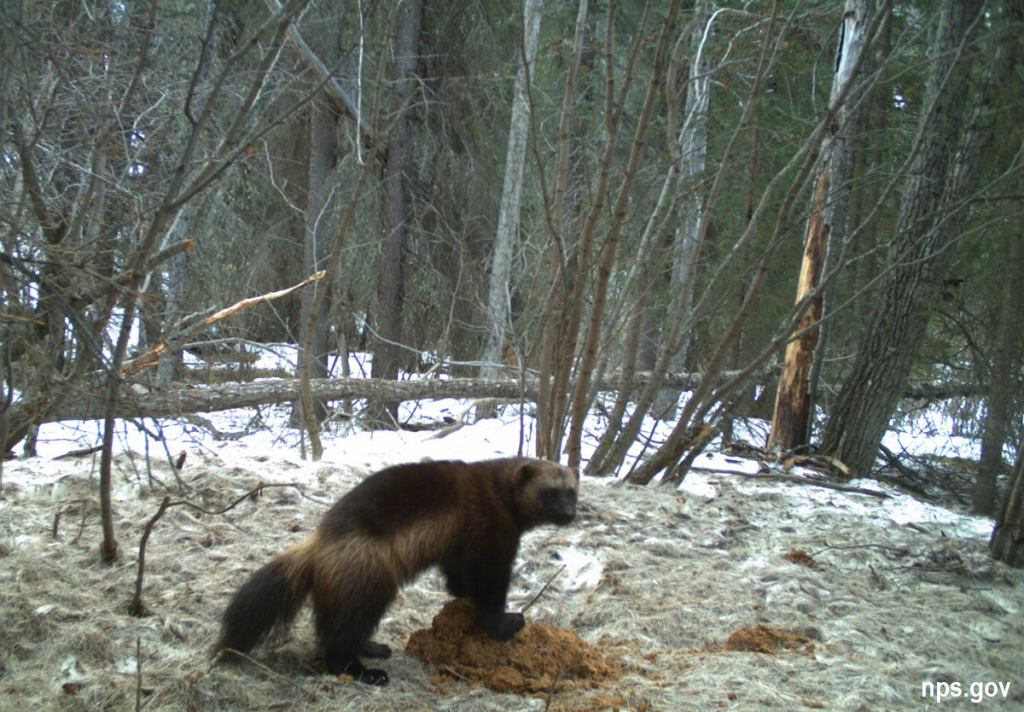 Miss Lastery Sardel, a 19th Century Corvallis schoolteacher, once famously observed that “when a man describes an animal as ‘vicious,’ he usually means that if he tries to kill it, it will defend itself.”
Miss Lastery Sardel, a 19th Century Corvallis schoolteacher, once famously observed that “when a man describes an animal as ‘vicious,’ he usually means that if he tries to kill it, it will defend itself.”
A wolverine will defend itself very, very energetically. That is what makes the little creature – hardly larger than a cat – so fondly regarded, and why so many sports teams, motorcycles, hiking boots, and superheroes are named after it.
The wolverine, Gulo gulo, is the largest of the weasel family. Growing as large as fifty pounds, and shockingly fierce out of proportion to their size, they have been known to bring down moose.
But of course, Gulo gulo is no match for Homo sapiens, and as humans kill wolverines for their fur and their claws, capture them to keep as pets and zoo animals, ride snowmobiles through their habitat, and most of all, overheat the planet which reduces the range where they can excavate dens in the spring snowpack for bearing their young, wolverines are disappearing from the contiguous 48 states. From 19 states, they now live in only five in isolated populations in danger of suffering from inbreeding. Oregon is one of those five states, along with Washington, Idaho, Montana, Oregon, and Wyoming.
This is exactly the sort of situation for which the Endangered Species Act was written, to ensure that those last 300 wolverines don’t vanish entirely. A coalition of conservation groups have won the case for adding these fierce creatures to the Endangered Species list. The U.S. Fish and Wildlife Service must decide by August 31 if the Act applies.
Today’s resolution concludes a lawsuit filed in March, seeking to force the Service to comply with a 2016 court ruling which ordered them to declare the wolverine endangered in the lower 48 “at the earliest possible, defensible moment in time.”
The wording of the ruling back in 2016 suggests that the judge was irritated with FWS’s foot-dragging even then: “For the wolverine, that time is now.”
Parties to the lawsuit now resolved include Earthjustice – which filed the suit, Center for Biological Diversity, Conservation Northwest, Defenders of Wildlife, Friends of the Clearwater, Greater Yellowstone Coalition, Idaho Conservation League, Jackson Hole Conservation Alliance, Klamath-Siskiyou Wildlands Center, and Rocky Mountain Wild.
“The decline of the wolverine on the West Coast is telling us that we must take bold action to stop climate change,” said Joseph Vaile of the Klamath Siskiyou Wildlands Center. “Without deep snowpack, the wolverine’s range will continue to retract until it winks out entirely.”
“While wolverine are as tough and rugged as their wilderness home, they face dire threats from a warming climate, shrinking snowpack, and an increasingly fragmented habitat,” said Dave Werntz, science and conservation director at Conservation Northwest. “Endangered Species Act protections will help marshal the resources and recovery actions to ensure wolverine have a future in the west’s wild country.”
By John M. Burt
Do you have a story for The Advocate? Email editor@corvallisadvocate.com




